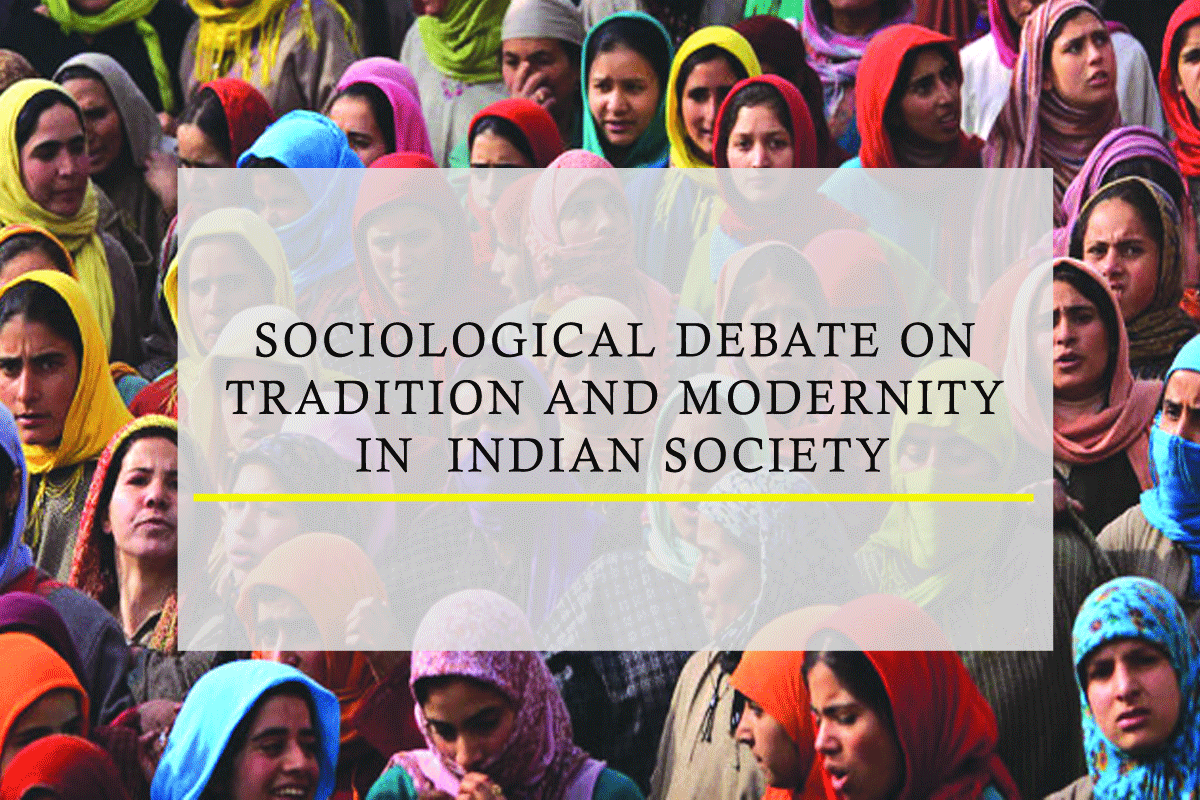Dhurjati Prasad Mukerji (1894-1961), popularly called as D.P., was one of the founding fathers of sociology in India. He was born in West Bengal but worked all through his life in Lucknow. He took his degrees in history and economics from Calcutta University. He was a Marxist but preferred to call himself a Marxiologist, i.e., a social scientist of Marxism.
He analyzed Indian society from the Marxian perspective of dialectical materialism. He argued that there is dialectical relation between India’s tradition and modernity, British colonialism and nationalism and individualism and collectivity, i.e., sangha. His concept of dialectics was anchored in liberal humanism.
He argued all through his works that traditions are central to the understanding of Indian society. The relations between modernization which came to India during the British period and traditions is dialectical. It is from this perspective of dialectics that, D.P. argued, we shall have to define traditions.
The encounter of tradition with modernization created certain cultural contradictions, adaptations and in some cases situations of conflict also. Describing the consequences of the tradition-modernity encounter, Yogendra Singh writes:
In D.P. Mukerji’s writing we find some systematic concern with the analysis of Indian social processes from a dialectical frame of reference. He mainly focuses upon the encounter of the tradition with that of the west which, on the one hand, unleashed many forces of cultural contradiction and, on the other, gave rise to a new middle class. The rise of these forces, according to him, generates a dialectical process of conflict and synthesis which must be given a push by bringing into play the conserved energies of the class structure of Indian society.
The encounter between tradition and modernity, therefore, ends up in two consequences:
(1) Conflict, and
(2) Synthesis.
Indian society as D.P. envisages is the result of the interaction between tradition and modernity. It is this dialectics which helps us to analyze the Indian society. D.P.’s concept of tradition appeared for the first time in the year 1942 when his book Modern Indian Culture: A Sociological Study was published. His characterization of tradition in the context of Indian culture runs as below:
As a social and historical process … Indian culture represents certain common traditions that have given rise to a number of general attitudes. The major influences in their shaping have been Buddhism, Islam, and western commerce and culture. It was through the assimilation and conflict of such varying forces that Indian culture became what it is today, neither Hindu nor Islamic, neither a replica of the western mode of living and thought nor a purely Asiatic product.
Composition of tradition:
Indian traditions are the resultants of certain historical processes. They actually construct the structure of Indian culture. These traditions belong to several ideologies such as Buddhism, Islam, Christianity, tribals and western modernity. The process of synthesis has, therefore, constructed these traditions.
In this respect, it would be mistaken to believe that India’s traditions are Hindu only. In fact, they combine traditions of various ethnic groups of the country. How the principles of various religious ideologies shaped the Indian traditions has been interpreted by T.N. Madan as below:
In this historical process, synthesis had been the dominant organizing principle of the Hindu, the Buddhist and the Muslim who had together shaped a worldview in which, according to D.P., ‘the fact of being was of lasting significance’.
His favorite quotation from the Upanishads was charaivati, keep moving forward. This meant that there had developed an indifference to the transient and the sensate and a preoccupation with the subordination of the ‘little self to and ultimately its dissolution in the ‘supreme reality’.
D.P. tried to provide a classification of Indian traditions under three heads, viz., primary, secondary and tertiary. The primary traditions have been primordial and authentic to Indian society. The secondary traditions were given second ranking when the Muslims arrived in the country.
And by the time of the British arrival, Hindus and Muslims had yet not achieved a full synthesis of traditions at all levels of social existence. There was a greater measure of agreement between them regarding the utilization and appropriation of natural resources and to a lesser extent in respect of aesthetic and religious traditions. In the tertiary traditions of conceptual thought, however, differences survived prominently.
Sources of tradition:
Admittedly, traditions occupy a central place in any analysis of India’s traditions and modernization. But D.P. has not given the contents of these traditions. The major sources of traditions are Hinduism, Buddhism, Islam and western culture, but what traditions, for instance, of Hinduism or Islam constitute the broader Indian tradition has not been made specific by D.P.
His weakness in this respect has been identified by T.N. Madan who says that the general make up of Indian tradition according to D.P. could be a synthesis of Vedanta, western liberation and Marxism. But, what about the synthesis of Islam and Buddhism? D.P. fails to provide any such synthesis of other major traditions. T.N. Madan comments on this failure of D.P. as under:
An equally important and difficult undertaking would be the elaboration and specification of his conception of the content of tradition. Whereas he establishes, convincingly I think, the relevance of tradition to modernity at the level of principle, he does not spell out its empirical content except in terms of general categories. One uncomfortable feeling that he himself operated more in terms of institution and general knowledge than a deep study of the texts. A confrontation with tradition through field work in the manner of the anthropologist was, of course, ruled out by him, at least for himself.
Indian sociologists have talked enough about tradition but little effort has been made to identify the sources and content of tradition. And, this goes very well when we talk about D.P. Mukerji. Let us see other sociologists who have also written about tradition.
Main Article : SOCIOLOGICAL DEBATE ON TRADITION AND MODERNITY IN INDIAN SOCIETY


Copied as it is from BK Nagla. Death of Scholarship.